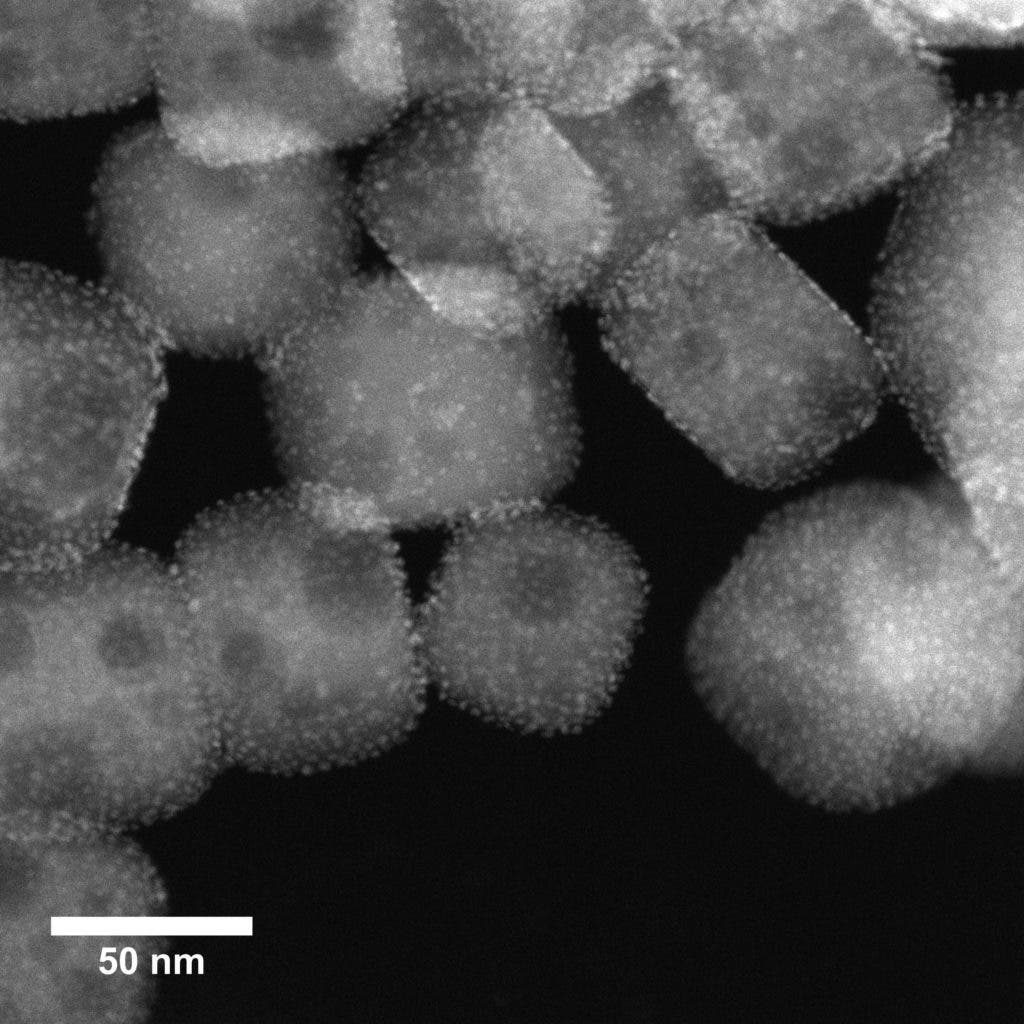New research is looking to give plastic waste a new lease on life as quality motor oil, lubricants, detergents, or even cosmetics.

Image credits Northwestern University / Argonne National Laboratory / Ames Laboratory.
Let’s not beat around the bush: humanity has a plastic problem. We’re making a lot of it and we’re throwing most away after a single use. Most recycling methods available today can take some of this waste out of the environment, but they also result in cheap, lower-quality plastics than the ones going into the process, which doesn’t make them very lucrative.
In an effort to find a better way of repurposing the mounds of plastic in the wild, a group of U.S. researchers has developed a new catalyst to turn them into high-quality liquid hydrocarbons. These materials can serve as the base for other products or can be useful as-is.
Liquidizing the assets
“Our team is delighted to have discovered this new technology that will help us get ahead of the mounting issue of plastic waste accumulation,” said Kenneth Poeppelmeier, a paper co-author from Northwestern University.
“Our findings have broad implications for developing a future in which we can continue to benefit from plastic materials, but do so in a way that is sustainable and less harmful to the environment and potentially human health.”
The upcycling method relies on a new catalyst the team developed. It is constructed from perovskite nanocubes studded with platinum nanoparticles. Perovskite was chosen because it remains stable under high temperatures and pressures, and is also a very good material for energy conversion (perovskite is the main material used for several types of solar panels). To deposit nanoparticles onto the nanocubes, the team used atomic layer deposition, a technique developed at Argonne National Laboratory that allows precise control of nanoparticles.
Under moderate pressure and temperature conditions, the catalyst breaks down plastics into high-quality liquid hydrocarbons. The team explains that these substances could be used in motor oil, lubricants, or waxes, or further processed to make ingredients for detergents and cosmetics.
It’s the first plastic recycling or upcycling method that is able to reach this end product. Commercially-available catalysts today generate lower quality products with many short hydrocarbons, which are of limited usefulness. Classic melt-and-reprocess recycling results lower-value plastic that is not as structurally strong as the original material.
Plastics are so resilient because on an atomic level, they have a lot of carbon atoms linked to other carbon atoms — and this chemical bond is very strong (has a lot of energy). As a rule of thumb, it takes a greater amount of energy than that contained in a bond to break it. There aren’t many things in nature that can completely break down plastic, but there are enough sources of energy to degrade it into microplastics. Given that we produce around 380 million tons of plastic yearly, and that over 75% is thrown away after one use (ending up in waterways and the ocean), it adds up to a lot of microplastics.
“There are certainly things we can do as a society to reduce consumption of plastics in some cases,” said Aaron D. Sadow, a scientist in the Division of Chemical and Biological Sciences at Ames Laboratory and the paper’s co-lead author. “But there will always be instances where plastics are difficult to replace, so we really want to see what we can do to find value in the waste.”
The team says that their approach produces far less waste than comparable processes, and virtually no emissions compared to recycling methods that involve melting plastic.
The paper “Upcycling Single-Use Polyethylene into High-Quality Liquid Products” has been published in the journal ACS Central Science.



